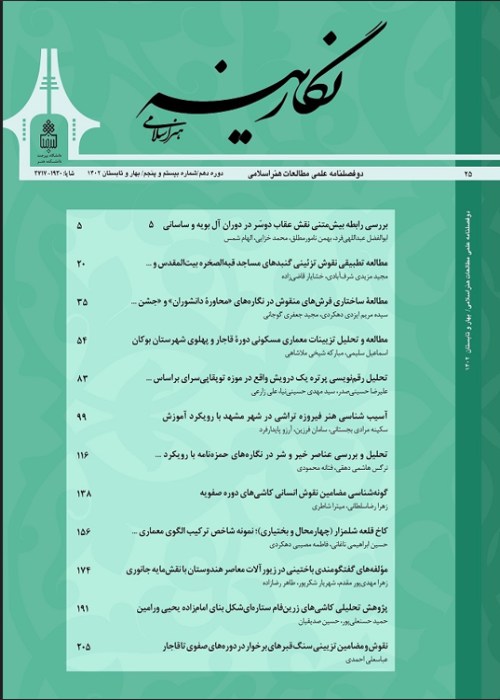An Environmental Approach to Mythology and Imagination In Islamic Gardens
While many historical gardens’ research in Iran focuses on the geographic region of Iran, the fantastic attributes and the mythology in gardens of Islamic civilization have not been much considered by Iranian scholars. Based on this gap in Persian literature the research questions are: What methods and elements of garden designing in Islamic civilization have been used to create a mythical and fantastic open space? Is the design and construction of mythical gardens in Islamic civilization merely a product of the decorative approach? Can we consider the environmental approach as the basic concept of creating the mythical and royal gardens in the early to the middle ages of Islamic civilization? This paper uses an exploratory approach based on a descriptive-analytic research methodology, with a study of important English bibliographic sources for each garden. Furthermore, the researcher instead of obtaining a historiographical approach that examines the garden as an enclosed object, by adopting an environmental approach, considers a larger context from the perspective of study to discuss the causes and effects, and the balance between natural forces and cultural values. Garden sites that have the value of studying from the perspective of unique mythology and design represent the spectacle of the landscape architecture of the Islamic period, which includes a wide variety of gardens and landscapes which are geographically aligned with Muslim domains of governance from the second to the eleventh century. It means the author for completing this study has selected the garden sites from Spain, Maghreb, Algeria, Tunisia, Egypt, Turkey, Syria, Iraq, Iran, Central Asia, Pakistan and India. The results of this study shows that the root of the creation the mythical gardens in Islamic civilization should be sought in the environmental approach of the landscape architects of that civilization. The diversity of mythical gardens and mythological practices in the royal gardens shows the fluidity of the meaning of the garden and its placement on the frontier of imagination and reality. The lands conquered by Muslims who shaped the Islamic world (Saudi Arabia, Syria, Jordan, Anatolia plateau, Iran and North Africa) were largely desert landscapes that, as a result of irrigation techniques and agricultural growth in the Islamic period, the gardens were the symbol of sovereignty. Water and water systems boosted green lakes, which were both economically efficient, and aesthetically pleasing. If the main function of water was the flourishing economy of agriculture, the objective of gardening was recreational applications in the form of pools and basins as the symbols of politics and wealth. Therefore, mythical gardens were a metaphor that not only reflected the particular way of organizing the landscape, but also the specific way of political economy. It is important to note that the mythical gardens were not the result of extreme decorations, but the planners and gardeners of the Islamic period applied on a three-dimensional environmental approach.
- حق عضویت دریافتی صرف حمایت از نشریات عضو و نگهداری، تکمیل و توسعه مگیران میشود.
- پرداخت حق اشتراک و دانلود مقالات اجازه بازنشر آن در سایر رسانههای چاپی و دیجیتال را به کاربر نمیدهد.


